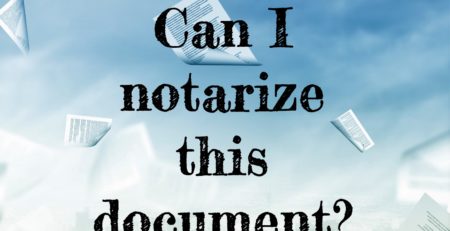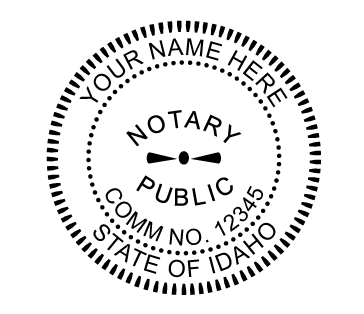New Laws for California Notaries 2017
New California Notary Laws
Effective January 1, 2017, notaries in California will have a few new notary laws to consider while performing their day-to-day notary duties. The following are the new laws that have been updated:
- Acceptable forms of ID
- Maximum Fees Allowed
- Acceptable Delivery Methods & Notary ID
Acceptable Forms of ID
Assembly Bill 2566, in conjunction with Senate Bill 997 amends Civil Code Section 1185, making the following changes:
- Foreign passports are no longer required to have a current visa stamp from USCIS or DHS.
- A valid consular identification card issued by a consulate from the applicant’s country of citizenship now acceptable.
- An ID card issued by a federally recognized tribal government is now acceptable.
Maximum Fees Allowed
California notaries just got a pay raise! Assembly Bill 2217 amends Government Code sections 8211 and 8223 to give notaries in California a 50% pay raise. Considering that it costs upwards of $400 to become a notary in California, this is welcome news. For the most common services, the maximum allowable charge went from $10 to $15. For the services relating to a deposition the total went from $20 to $30 and the individual services from $5 to $7.
How much can a California notary charge?
| Service | Max. Fee Allowed |
|---|---|
| Acknowledgment | $15 |
| Jurat | $15 |
| Certified Copy | $15 |
| Deposition Services | |
| All Services Related to a Deposition | $30 |
| Administering the oath to the witness | $7 |
| Certificate of deposition | $7 |
| Notary working as Immigration Consultant | |
| Entering data on immigration forms | $15 |
| Notary service on immigration forms | $15 |
Acceptable Delivery Methods & Notary ID
Senate Bill 974 amends Government Code sections 8205, 8206, 8213 and 8213.5. As of January 1, 2017 it is now acceptable to communicate with the county and state governments by certified mail OR any delivery method that provides a receipt. Also, notaries will be required to provide acceptable ID when filing the oath at the county office.
New Laws:
Assembly Bill 2566 (Nazarian) (Chapter 762, Statutes of 2016), in conjunction with Senate Bill 997 (Lora) (Chapter 491, Statutes of 2016), effective January 1, 2017, amends California Civil Code section 1185, for specific forms of identification that can be used for proof of the identity when appearing before a notary public.
Effective January 1, 2017, these bills eliminate the requirement that a valid passport from the applicant’s country of citizenship be stamped by the United States Citizenship and Immigration Services of the Department of Homeland Security, and add a valid consular identification document issued by a consulate from the applicant’s country of citizenship, as proof of identity.
These bills also add an identification card issued by a federally recognized tribal government as proof of identity. California Civil Code section 1185 requires forms of identification as follows:
A notary public may establish the identity of a person appearing before the notary public using identification documents if there is an absence of any information which would lead a reasonable person to believe that the individual is not the person he or she claims to be and:
1. There is reasonable reliance on any one of the following forms of identification, provided it is current or was issued within 5 years:
a. An identification card or driver’s license issued by the California Department of Motor Vehicles;
b. A United States passport;
c. An inmate identification card issued by the California Department of Corrections and Rehabilitation, if the inmate is in custody in prison; or
d. Any form of inmate identification issued by a sheriff’s department, if the inmate is in custody in a local detention facility; or
2. There is reasonable reliance on any one of the following forms of identification, provided it is current or was issued within 5 years, provided that it also contains a photograph, description of the person, signature of the person, and an identifying number:
a. A valid consular identification document issued by a consulate from the applicant’s country of citizenship, or a valid passport from the applicant’s country of citizenship;
b. A driver’s license issued by another state or by a Canadian or Mexican public agency authorized to issue drivers’ licenses;
c. An identification card issued by another state;
d. An identification card issued by any branch of the Armed Forces of the United States (caution: current military identification cards may not have all of the required elements);
e. An employee identification card issued by an agency or office of the State of California, or by an agency or office of a city, county, or city and county in California;
f. An identification card issued by a federally recognized tribal government.
Assembly Bill 2217 (Hadley) (Chapter 133, Statutes of 2016), effective January 1, 2017, amends California Government Code sections 8211 and 8223 by increasing the fees which may be charged for certain notarial acts.
California Government Code sections 8211 and 8223 were amended as follows:
8211. Fees charged by a notary public for the following services shall not exceed the fees prescribed by this section.
(a) For taking an acknowledgment or proof of a deed, or other instrument, to include the seal and the writing of the certificate, the sum of fifteen dollars ($15) for each signature taken.
(b) For administering an oath or affirmation to one person and executing the jurat, including the seal, the sum of fifteen dollars ($15).
(c) For all services rendered in connection with the taking of any deposition, the sum of thirty dollars ($30), and in addition thereto, the sum of seven dollars ($7) for administering the oath to the witness and the sum of seven dollars ($7) for the certificate to the deposition.
(d) No fee may be charged to notarize signatures on vote by mail ballot identification envelopes or other voting materials.
(e) For certifying a copy of a power of attorney under Section 4307 of the Probate Code the sum of fifteen dollars ($15).
(f) In accordance with Section 6107, no fee may be charged to a United States military veteran for notarization of an application or a claim for a pension, allotment, allowance, compensation, insurance, or any other veteran’s benefit.
8223. (a) A notary public who holds himself or herself out as being an immigration specialist, immigration consultant, or any other title or description reflecting an expertise in immigration matters shall not advertise in any manner whatsoever that he or she is a notary public.
(b) A notary public qualified and bonded as an immigration consultant under Chapter 19.5 (commencing with Section 22440) of Division 8 of the Business and Professions Code may enter data, provided by the client, on immigration forms provided by a federal or state agency. The fee for this service shall not exceed fifteen dollars ($15) per individual for each set of forms. If notary services are performed in relation to the set of immigration forms, additional fees may be collected pursuant to Section 8211. This fee limitation shall not apply to an attorney, who is also a notary public, who is rendering professional services regarding immigration matters.
(c) This section shall not be construed to exempt a notary public who enters data on an immigration form at the direction of a client, or otherwise performs the services of an immigration consultant, as defined by Section 22441 of the Business and Professions Code, from the requirements of Chapter 19.5 (commencing with Section 22440) of Division 8 of the Business and Professions Code. A notary public who is not qualified and bonded as an immigration consultant under Chapter 19.5 (commencing with Section 22440) of Division 8 of the Business and Professions Code may not enter data provided by a client on immigration forms nor otherwise perform the services of an immigration consultant.
Senate Bill 974 (Chapter 366, Statutes of 2016), effective January 1, 2017 amends sections 8205, 8206, 8213, and 8213.5 of the Government Code.
This bill amends Government Code section 8213 to require a person taking the oath of office before the county clerk to serve as a notary public to present identification documents meeting certain requirements specified in statute as satisfactory evidence of identity. Section 8213 was also amended to provide that if the oath of office is taken and subscribed before a notary public, the oath and bond may be filed with the county clerk by certified mail or any other means of physical delivery that provides a receipt.
Existing law requires specified communications between the Secretary of State and notaries public to be made by certified mail. Existing law also specifies that, wherever any notice or communication required by laws to be mailed by registered mail to or by the state, the mailing of the notice by certified mail is deemed a sufficient compliance with that requirement. This bill amends Government Code sections 8205, 8206 and 8213.5 to authorize the use of any other means of physical delivery that provides a receipt for these communications.
Share this post
Leave a Reply
You must be logged in to post a comment.













Comments (4)
Thanks for sharing this information! It looks like CA has made some positive changes.
About time, right?
This will save time for a lot of notaries and signers from Mexico and other Latin American countries that do not have the normally accepted government issued IDs. A few times at the signing and after requesting a government ID , the signer would leave the signing table saying “I will be back…” and leave the house driving around the neighborhood fishing for some witnesses.
In the past, when some changes were made to the law, it took a while for banks to implement the changes on the notary forms; hopefully more notaries will learn about the changes sooner.
what about the Electronic Signature?